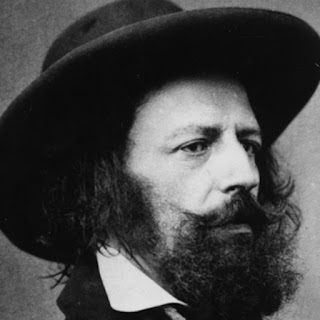“Literature isn’t a moral beauty contest. Its power arises from the
authority and audacity with which the impersonation is pulled off; the
belief it inspires is what counts.”
The New Jersey city where Roth grew up, and the setting for much of his fiction.
Roth went to Weequahic High School, and that, too, pops up quite a bit in his fiction.
During his time at Weequahic, Roth was known as a cut-up. By the time of his death, he was still known as a cut-up (as well as for being a literary lion.)
After college and a stint in the army, Roth began getting published in various magazines. In 1960, he came out with his first book...
Five short stories and and the title novella. In the latter, the gauche side of the American Dream is explored when a working-class intellectual becomes the house-and-wedding guest of his beautiful, bespectacled, rhinoplasticized girlfriend's nouveau riche family.
I was driving past long lawns which seemed to be twirling water on themselves, and past houses where no one sat on stoops.
Fruit grew in their refrigerator and sporting goods dropped from their trees!
We came back to the chairs now and then and sang hesitant, clever,
nervous, gentle dithyrambs about how we were beginning to feel towards
one another. Actually we did not have the feelings we said we had until
we spoke them-at least I didn't; to phrase them was to invent them and
own them. We whipped our strangeness and newness into a froth that
resembled love, and we dared not play too long with it, talk too much of
it, or it would flatten and fizzle away. So we moved back and forth
from chairs to water, from talk to silence, and considering my
unshakable edginess with Brenda, and the high walls of ego that rose,
buttresses and all, between her and her knowledge of herself, we managed
pretty well.
A major plot point of Goodbye Columbus:
"Tis better to have loved and lost than never to have loved at all."
--Alfred Lord Tennyson
Goodbye Columbus won the National Book Award and was later turned into a movie (I wonder if the extras got to take home doggie bags.) Roth followed with two more novels, but he was really a kind of second-tier writer throughout the 1960s. That changed at the very end of the decade when he explored a topic that up to then had been underrepresented in American (or any other kind of) literature.
It may be a heinous sin...
...but it put Roth right at the top of the best-sellers list.
The following quotes may be inappropriate for children under the age of 13...on second thought, make that 23:
Portnoy's Complaint: A disorder in which strongly felt ethical and altruistic impulses are perpetually warring with extreme sexual longings, often of a perverse nature...
I am marked like a road map from head to toe with my repressions. You
can travel the length and breadth of my body over superhighways of shame
and inhibition and fear.
Dreams? If only they had been! But I don't need dreams, Doctor, that's
why I hardly have them—because I have this life instead. With me it all
happens in broad daylight!
In school we chanted, along with our teacher, I am the Captain of my
fate, I am the Master of my soul, and meanwhile, within my own body, an
anarchic insurrection had been launched by one of my privates - which I
was helpless to put down!
I am the Raskolnikov of jerking off – the sticky evidence is everywhere!
So. Now you know the worst thing I have ever done. I fucked my own family's dinner.
There's nothing like a banned best-seller. Seems like a contradiction in terms, doesn't it?
Let's move on, shall we? In 1971, Roth decided to turn toward politics.
President Trick E. Dixon manages to condemn abortion and defend My Lai butcher William Calley at the same time:
Well, of course, that is a very iffy question, isn't it? What we lawyers
call a hypothetical instance—isn't it? If you will remember, we are
only "supposing" there to have been a pregnant woman in the ditch at My
Lai to begin with. Suppose there "wasn't" a pregnant woman in that
ditch—which, in fact, seems from all evidence to have been the case. We
are then involved in a totally academic discussion.
A very strange thing happens to David Kepesh in Roth's 1972 novella:
I am a breast. A Phenomenon that has been vastly described to me as "a
massive hormonal influx, "a endocrinopathic catastrophe" and/or "a
hermaphroditic explosion of chromosomes" took place within my body
between midnight and 4 A.M. on February 18, 1971, and converted me into a
mammary gland disconnected from any human form.
Kepesh never says whether he's on the left or the right.
No, Roth didn't write the above book. I just want you to take a look at the following definition:
Metafiction /ˈmedəˌfikSH(ə)n/ noun
: fiction which refers to or takes as its subject fictional writing and its conventions
Which brings us to...
The book is split in two. The first part is a couple of short stories, but the second part is about a writer named Peter Tarnopol, who wrote the couple of short stories in the FIRST part. That right there would qualify as metafictional. Except what nobody knew in 1974, that this book was just the first salvo in a metafictional barrage on Roth's part. You see, in one of those short stories, Tarnopal writes about a character named...

...Nathan Zuckerman. There would be nine more books (and the above four-book collection) with Zuckerman either as the main character or as a secondary character observing the main character. The question I have is, who wrote these books? Well, Roth obviously, but is he writing as Peter Tarnopal writing as Nathan Zuckerman, or is just cutting out the middleman Tarnopal (who I don't believe ever again appears in a Roth novel) altogether? One thing seems certain, Zuckerman is based on Roth himself, and no more so than in the third novel (1981) in which he appears:
It's all about a novelist who writes a best-selling novel that has a lot of sex in it. Sound familiar?
Gone were the days when Zuckerman had only to worry about Zuckerman
making money: henceforth he would have to worry about his money making
money.
All this, this luck – what did it mean? Coming so suddenly, and on such a scale, it was as baffling as a misfortune.
Zuckerman, sucker though he was for seriousness, was still not going to
be drawn into a discussion about agents and editors. If ever there was a
reason for an American writer to seek asylum in Red China, it would be
to put ten thousand miles between himself and those discussions.
In 1988, Roth wrote his autobiography, bookended by two letters, one to and one from...Nathan Zuckerman (so is this metanonfiction?)
Obviously the facts
are never just coming at you but are incorporated by an imagination
that is formed by your previous experience. Memories of the past are not
memories of facts but memories of your imaginings of the facts.
--Opening letter to Nathan Zuckerman
They boo you, they whistle, they stamp their feet—you hate it but you
thrive on it. Because the things that wear you down are the things that
nurture you and your talent.
--Nathan Zuckerman's letter to Philip Roth
Hey! All you baby boomers out there...
...remember them?
In 1995, Roth came up with his own puppeteer:
Many farcical, illogical, incomprehensible transactions are subsumed by the mania of lust.
I guess that's why we don't see too many puppeteers any more.
In Roth's Pulitzer Prize-winning 1996 tour de force (I swear, some of those paragraphs go on for pages, and I mean that as a compliment) Nathan Zuckerman and/or an Omniscient Third-Person Narrator (it's sometimes hard to tell) relates the story of Seymore "The Swede" Levov, one of life's winners until his teenage daughter picks the people to hang around with in the turbulent 1960s.
You fight your superficiality, your shallowness, so as to try to come at
people without unreal expectations, without an overload of bias or hope
or arrogance, as untanklike as you can be, sans cannon and machine guns
and steel plating half a foot thick; you come at them unmenacingly on
your own ten toes instead of tearing up the turf with your caterpillar
treads, take them on with an open mind, as equals, man to man, as we
used to say, and yet you never fail to get them wrong. You might as well
have the brain of a tank. You get them wrong before you meet them,
while you're anticipating meeting them; you get them wrong while you're
with them; and then you go home to tell somebody else about the meeting
and you get them all wrong again. Since the same generally goes for them
with you, the whole thing is really a dazzling illusion. ... The fact
remains that getting people right is not what living is all about
anyway. It's getting them wrong that is living, getting them wrong and
wrong and wrong and then, on careful reconsideration, getting them wrong
again. That's how we know we're alive: we're wrong. Maybe the best
thing would be to forget being right or wrong about people and just go
along for the ride. But if you can do that -- well, lucky you
Yes, alone we are, deeply alone, and always, in store for us, a layer of
loneliness even deeper. There is nothing we can do to dispose of that.
No, loneliness shouldn’t surprise us, as astonishing to experience as it
may be. You can try yourself inside out, but all you are then is inside
out and lonely instead of inside in and lonely. My stupid, stupid Merry
dear, stupider even than your stupid father, not even blowing up
buildings helps. It’s lonely if there are buildings and it’s lonely if
there are buildings and it’s lonely if there are no buildings. There is
no protest to be lodged against loneliness⎯not all the bombing campaigns
in history have made a dent in it. The most lethal of manmade
explosives can’t touch it. Stand in awe not of Communism, my idiot
child, but of ordinary, everyday loneliness.
...a father for whom everything is an unshakable duty, for whom there is a
right way and a wrong way and nothing in between, a father whose
compound of ambitions, biases, and beliefs is so unruffled by careful
thinking that he isn’t as easy to escape from as he seems. Limited men
with limitless energy; men quick to be friendly and quick to be fed up;
men for whom the most serious thing in life is to keep going despite
everything. And we were their sons. It was our job to love them.
Everybody who flashed the signs of loyalty he took to be loyal.
Everybody who flashed the signs of intelligence he took to be
intelligent. And so he had failed to see into his daughter, failed to
see into his wife, failed to see into his one and only mistress—probably
had never even begun to see into himself
Charles A. Lindbergh, the first man to fly solo across the Atlantic (in 1927.) A few years after that...
The above did not end happily. I only bring it up as a possible explanation for Lindy's subsequent behavior, that perhaps all that stress had an averse affect on his common sense, no more so than when he openly expressed admiration for this man:
To his credit, Lindbergh later changed his mind, and supported the war he had originally hoped America would stay out of. But what if he hadn't? What if he had felt so strongly about the possibilities of a global Third Reich that he decided to run for President? And since he was a pretty popular fellow, suppose he had won?
That's the alternate history Roth wrote about in his 2004 novel, all told from the point of view of a boy not yet in his teens: Philip Roth!
And as Lindbergh's election couldn't have made clearer to me, the
unfolding of the unforeseen was everything. Turned wrong way round, the
relentless unforeseen was what we schoolchildren studied as "History,"
harmless history, where everything unexpected in its own time is
chronicled on the page as inevitable. The terror of the unforeseen is
what the science of history hides, turning a disaster into an epic.
“But why did you go,” my mother asked him, “when it was bound to upset
you like this?” “I went,” he told her, “because every day I ask myself
the same question: How can this be happening in America? How can people
like these be in charge of our country? If I didn’t see it with my own
eyes, I’d think I was having a hallucination.”
Never in my life had I so harshly judged any adult—not my parents, not
even Alvin or Uncle Monty—nor had I understood till then how the
shameless vanity of utter fools can so strongly determine the fate of
others. “Did you meet Mr. von Ribbentrop?” Now almost girlishly bashful,
she replied, “I danced with Mr. von Ribbentrop."
And, as proof Roth can find the humor in any situation, even the Fascist overthrow of America:
War with Canada was far less of an enigma to me than what Aunt Evelyn was going to use for a toilet during the night.
There's like 20 other books Roth wrote that I haven't touched upon. Obviously the man kept busy. Maybe fast food was his secret.
I haven't brought this up until now, and have kept any mention of it out of the quotes, but Philip Roth was often described as a Jewish writer who wrote of Jewish concerns. So, does that mean you had to be Jewish yourself to get anything out of his work? No. First off, Goodbye Columbus
is not Fiddler on the Roof
(and even if it was, there's plenty of Gentiles who have enjoyed that.) Second, Roth himself always protested the Jewish writer label. He claimed to be an American who happened to be Jewish writing about other Americans who happened to be Jewish. That's a bit disingenuous, however. True, his characters were assimilated Jews (Tevye's descendents), but they were very often SELF-CONSCIOUSLY assimilated. In other words, they were trying to fit in. Even as a non-Jew I can relate to that. Roth took the Jewish-American experience and made it universal. Or maybe he took the universal experience and made it Jewish-American. Either way, it worked.































































